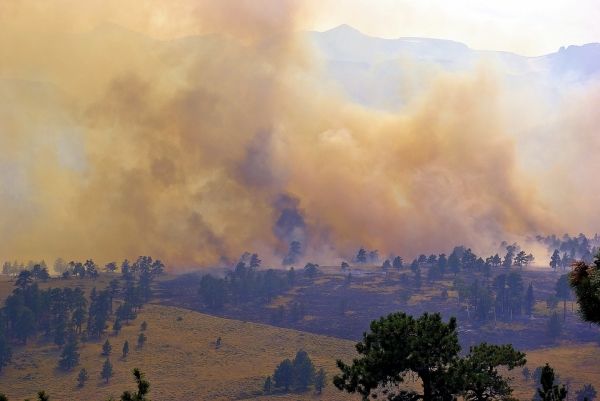Following 2020’s extreme fire season, high-elevation forests in the central Rocky Mountains now are burning more than at any point in the past 2,000 years, according to a new University of Montana study recently published in the Proceedings of the National Academy of Sciences.
Researchers from UM and the University of Wyoming analyzed a unique network of fire-history records to understand how 21st-century fire activity compares to wildfires in the past. The findings highlight that burning in recent decades in high-elevation forests of northern Colorado and southern Wyoming is unprecedented over the past several millennia.
As fire paleoecologists – scientists who study historical ecosystems – the team uses charcoal found in lake sediments to piece together the fire history of forests across the Rocky Mountains. The idea, said lead author and UM professor Philip Higuera, is that understanding the past is key to understanding changes we see today and how forests may change in the future.
When 2020’s massive fire season hit, its ferocity startled Higuera and his co-authors – UM doctoral candidate Kyra Wolf and UW Professor Bryan Shuman. Last year, wildfires in Colorado burned through October, unusually late in the year. By November, the 2020 wildfires alone were responsible for 72% of the total area burned in high-elevation forests since 1984 in their study region, and Colorado had seen three of its largest fires on record.
Read more at The University of Montana
Photo Credit: MikeGoad via Pixabay


